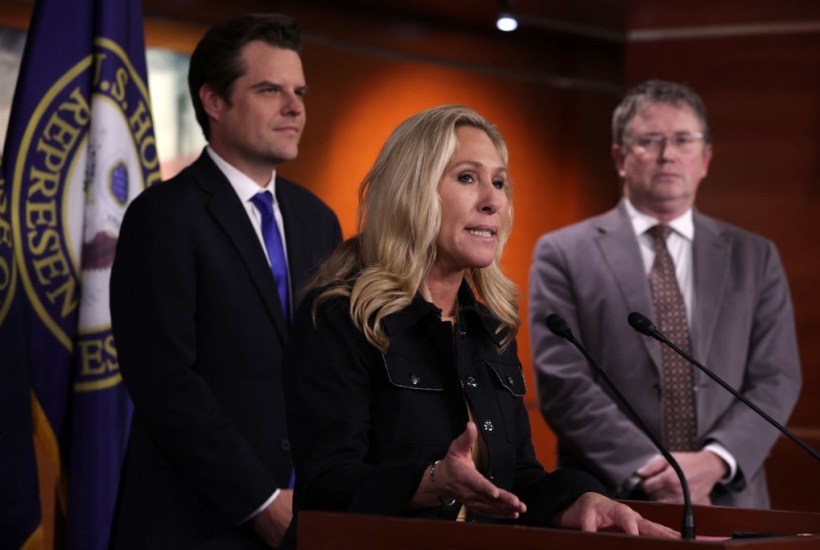Volodymyr Zelensky’s address to Congress on Wednesday seems to have upset some in the Republican party. Four representatives refused to clap after his speech, and two of them – Matt Gaetz and Lauren Boebert – were seen seated throughout, captivated by their mobile phones instead.
Boebert, the representative for Colorado’s third district, later published her response to Zelensky’s address on Twitter.
Already a subscriber? Log in
Subscribe for just $2 a week
Try a month of The Spectator Australia absolutely free and without commitment. Not only that but – if you choose to continue – you’ll pay just $2 a week for your first year.
- Unlimited access to spectator.com.au and app
- The weekly edition on the Spectator Australia app
- Spectator podcasts and newsletters
- Full access to spectator.co.uk
Or




















Comments
Don't miss out
Join the conversation with other Spectator Australia readers. Subscribe to leave a comment.
SUBSCRIBEAlready a subscriber? Log in